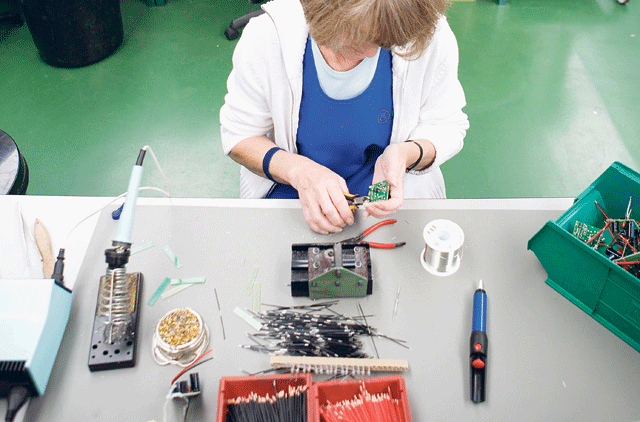
London: British manufacturing fell unexpectedly in April, suggesting the recovering economy made a slow start to the second quarter.
However most analysts said it was too soon to say growth was stalling.
Producer price inflation data were mixed. But a separate survey by the Bank of England — showing the public's expectations for inflation jumped to a two-year high — raised concerns that higher prices were becoming entrenched.
Yesterday's figures embodied the dilemma facing monetary policymakers trying to balance a spike in consumer price inflation, against fragile economic conditions.
The Office for National Statistics said manufacturing output fell 0.4 per cent in April, more than reversing March's 2.2 per cent rise and confounding forecasts for a 0.5 per cent gain.
The wider measure of industrial output also fell 0.4 per cent after a strong rise in March and against forecasts for a rise of 0.4 per cent. The declines were the first since January but analysts — most of whom had expected a rise — said they should be taken in the context of other survey evidence which pointed to a manufacturing recovery.
There was no market reaction. "The setback in the April manufacturing performance is likely to be temporary blip in what is a global rebound that is still in large part just a correction after the plunge in output in 2008-09," said Amit Kara, an economist at UKBS property consultants.
"Even with the recovery so far, manufacturing output today is still at the same level as 1994, suggesting that there is still plenty of scope to catch up."
Uncertain
However, the outlook remained uncertain due to the ongoing debt troubles in the euro zone — the destination for half of Britain's exports — and an impending fiscal squeeze which would dent demand at home.
Yesterday's data also showed producers toned down the prices they charged at the factory gate slightly faster than expected, even though their input costs fell less sharply than forecast.
"Manufacturers do appear in recent months to have been taking advantage of improved activity to push through some price increases," said Howard Archer, economist at IHS Global Insight.
"May's reduced increase in producer prices suggests that they may be starting to find it more difficult to do this."











